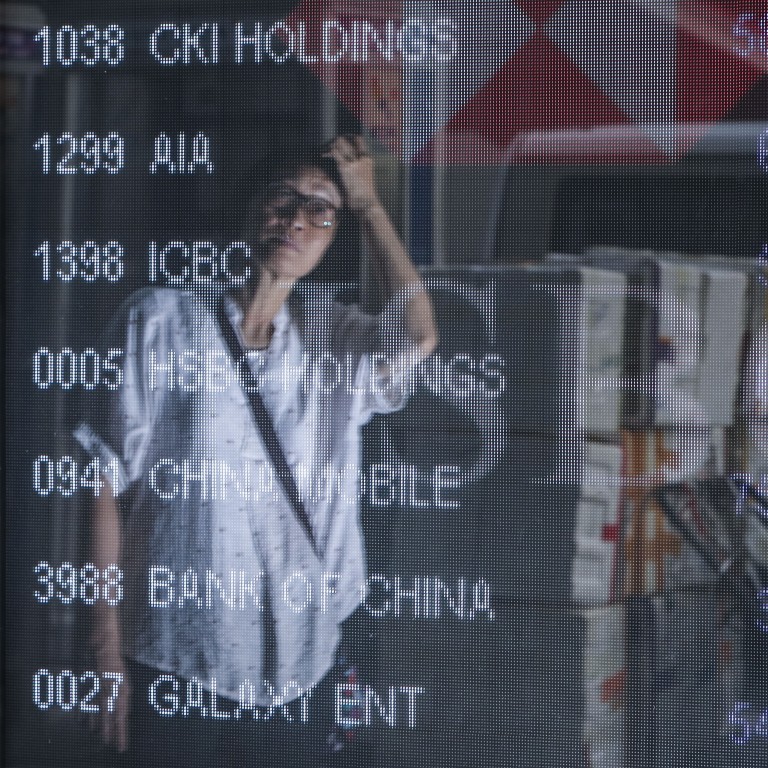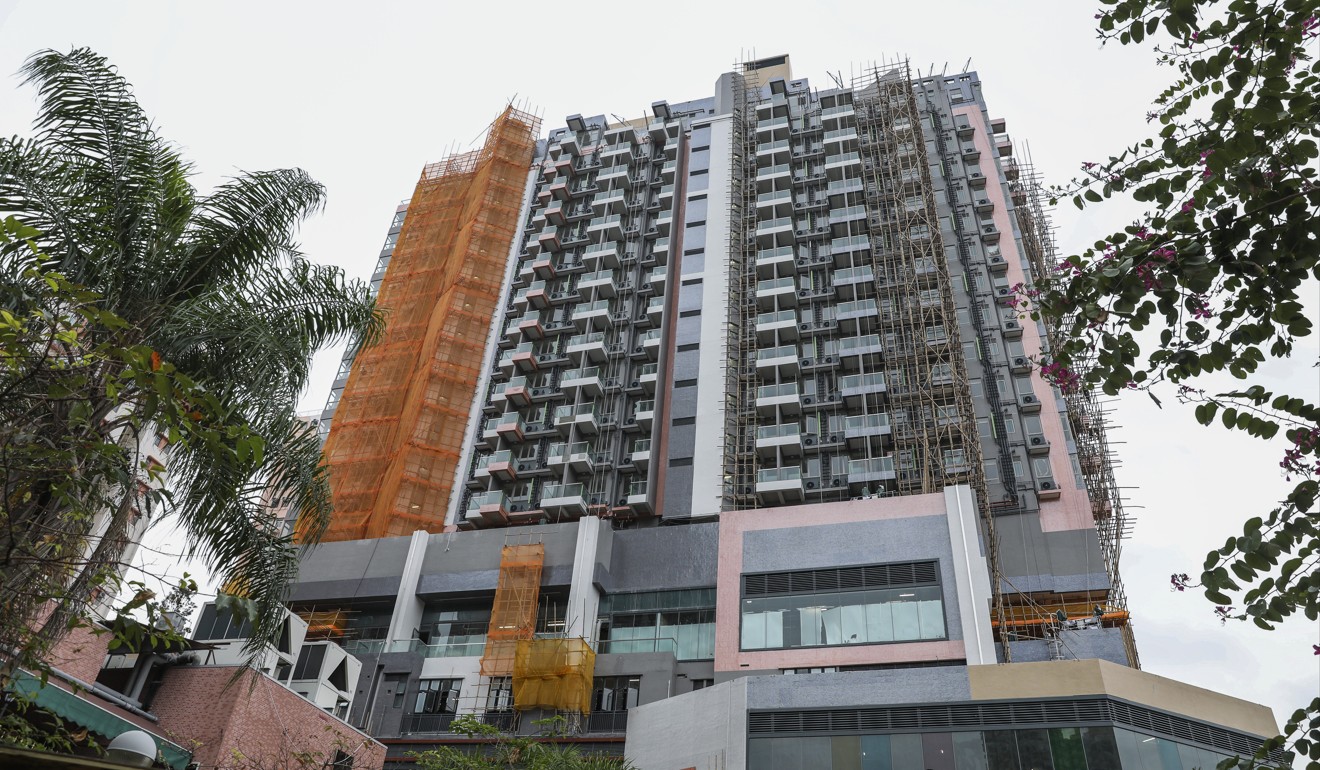
Chinese developer behind US$1 million nano flats comes under severe selling pressure as shares plunge 80pc in Hong Kong
- Jiayuan International Group, the builder behind the T Plus micro flat project in Tuen Mun, sinks 81 per cent, loses HK$26 billion in market value
- Sunshine 100 China Holdings sheds 65 per cent
Chinese property developers in Hong Kong came under severe selling pressure, with the shares of two builders sinking by as much as 80 per cent in late trading on Thursday afternoon.
Analysts said the stocks may have taken a hit because of banks selling shares used as collateral to borrow money and tightening liquidity conditions on the mainland.
Jiayuan International Group, which is behind the T Plus micro flat project in Tuen Mun, plunged 80.6 per cent to HK$2.52 at the close.
Over 357 million shares were traded on Thursday, 68 times the daily average over the past one year.
The mainland-based developer has been under pressure as sales of units at the project have not picked up owing to the downbeat market sentiment.
The project’s sales launch closed early on December 8 after only two of the 73 units on offer were sold, agents said. Some flats measure 131 square feet, smaller than a standard Hong Kong car-parking space, but are priced at HK$2.85 million (US$363,291).

About HK$26 billion of the company’s market value was wiped off on Thursday.
Last week Jiayuan said that contracted sales had plunged 31 per cent to 2.15 billion yuan (US$317.4 million) in December.
In the past year the company has been taking over property projects, land plots in Hong Kong, Guangdong, Guiyang, Urumqi and Cambodia, according to stock filings.
Jiayuan had US$350 million of debt maturing on Thursday. The yield on the bond with a 8.125 per cent coupon surged to 116 per cent from 16 per cent at the beginning of this month as investors dumped the paper.
Jiayuan said in a statement that the bond had been repaid in full.
A source at Jiayuan’s creditor confirmed the company had received the payment last week and that the sell-off may have been caused by a major investor of the company getting detained in China, prompting banks to clear his positions in Jiayuan and other counters including Sunshine 100 China Holdings.
Sunshine 100 also plummeted by nearly 80 per cent intraday. It eventually lost 64.6 per cent to close at HK$1.31, losing about HK$6 billion in market value.
Jiayuan International is a major subsidiary of Zhejiang-based Jiayuan Group, contributing around 20 per cent of sales to the group. The parent company is entangled in a scandal of buying good ranking position in a property company ranking list in the mainland recently.
The company had also sold US$400 million of bonds in the fourth quarter, which mature in 2020.
A spokeswoman for Hong Kong Exchanges & Clearing said they had noticed a slump in some shares but declined to comment on individual shares.
A spokeswoman for Sunshine 100 said the company was “shocked” to “suddenly” know their share had sunk but emphasised that the company’s operation was normal and there was no problem.
“The whole sector was also like that. Other companies also had this [problem],” she said, adding they could not predict whether their share price would continue to drop on Friday. “We are still handling this. If we have further information, we will announce it altogether.”
This kind of shares sinking without any particular reason might be because of banks forcibly selling shares that controlling shareholders used as collateral to borrow money, said Dickie Wong, executive director of research at Kingston Financial Group.
“Although the People’s Bank of China cut the reserve requirement ratio to boost liquidity, banks are still in general unwilling to lend because they may incur more bad debts,” Wong said. “Then borrowers can only use their shares as collateral to borrow money at a high cost. But banks will sell if they cannot repay the loan, no matter what the price is.”
He said when one or two companies show a problem, the valuations of other shares in the sector also come under market scrutiny.
Some big mainland-based developers also saw their share prices get hurt in the sell-off.
Longfor Group sank 9.1 per cent to HK$22.45. Vanke dropped 3.7 per cent to HK$27.2.
Other companies that suffered heavily on Thursday included Rentian Technology Holdings, which sank 73.3 per cent to 1.6 HK cents and HongDa Financial Holding, which shed 68.2 per cent to 2.7 HK cents.
Additional reporting by Xie Yu

